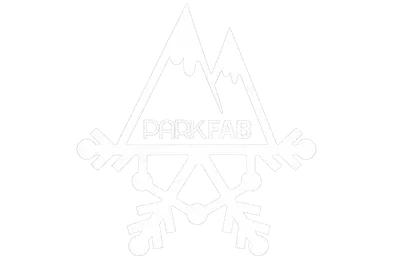Breaking down the numbers so you can compare bids with confidence.
If you’ve ever gotten multiple excavation bids in Teton Valley, ID or Alta, WY, you know they can look wildly different. One might be half the price of another — not because someone’s overcharging, but because the scope and quality of work can vary a lot.
Excavation isn’t just “dig a hole for the foundation.” It can include everything from mobilization and rough grading to drainage systems, septic, waterproofing, and insulation — or none of those things, depending on the contractor.
So let’s pull back the curtain and talk about what actually drives excavation costs here in the Tetons.
1. Mobilization & Machine Size
Most excavation bids in this area include a mobilization fee — the cost of getting the right-size machines and crew to your site.
-
Smaller basement digs with easy access might only require a mid-size excavator and one mobilization fee ($750–$1,600).
-
Larger or more complex sites may need multiple machines and moves, which can bump that number higher.
2. Foundation Excavation
This is the big one: digging to the bottom of footing (BOF) for your foundation.
-
A basic dig might be priced simply by square footage.
-
Others charge a lump sum for the entire basement footprint.
-
Depth, soil type, and access all matter: sandy soil moves fast, but rocky or wet sites slow production and increase costs.
3. Backfill & Rough Grading
After the foundation is in, the soil removed is pushed back against the walls (backfill) and the site is graded for drainage.
-
Some bids include compaction and a rough grade in one line item.
-
Higher-end bids often specify compaction “in lifts” to meet drainage slope requirements and prevent future settlement.
4. Material Export & Import
If you have excess fill that can’t stay on site, hauling it away can add thousands.
-
One quote included export of 250 yards at $20/yard = $5,000.
-
Importing clean gravel or road base for slab prep, radon systems, or bedding adds more.
5. Concrete/Slab Prep
This is the step where the subgrade inside the foundation is leveled and filled with gravel, road base, or both.
-
Some bids keep it minimal — just leveling and bringing in gravel.
-
Others include specific layering, compaction, radon piping, and separation fabric for a premium foundation base.
6. Drainage Systems
This is one of the biggest differences between “basic” and “comprehensive” excavation bids.
-
Some quotes don’t include any drainage work.
-
ParkFab, for example, installs a full French drain system around the foundation, tied to a sump location, to prevent water problems long term.
7. Waterproofing & Foundation Insulation
Not every excavator offers this — but in our –40°F winters, exterior waterproofing and insulation can make a huge difference.
-
ParkFab’s bid included liquid rubber waterproofing and 2” exterior foundation insulation for thermal protection.
-
Most other bids excluded this entirely.
8. Septic Systems
Some excavation bids include installing septic tanks and lines, while others treat it as a separate job.
-
One bid included a 1,060-gallon septic tank and full install for $4,470.
-
ParkFab’s septic line item included a lift station, tank install, drainfield extension, and full tie-in.
9. Final Grading & Landscaping Prep
After all other work is done, the site is graded for final drainage and aesthetics.
-
Basic bids may just “smooth it out.”
-
Comprehensive bids will spread topsoil, shape berms, and ensure 2% slope away from the home.
Why Some Excavation Bids Are So Much Higher
When you see a big gap between two excavation bids, it’s often because one includes:
-
Drainage systems
-
Waterproofing
-
Foundation insulation
-
Utility trenching (power, fiber, water)
-
Septic installation
-
Detailed slab prep with compaction and radon mitigation
…and the other doesn’t.
How ParkFab Approaches Excavation in Teton Valley
Shawn at ParkFab is known for full-scope excavation — not just moving dirt, but protecting your home for decades. His bids often include:
-
Comprehensive drainage and waterproofing
-
High R-value foundation insulation
-
Coordination with other trades (critical if you don’t have a GC)
-
Detailed slab prep and compaction
-
Utility trenching for power, fiber, and water
-
Final grading for proper drainage and landscaping
Homeowner Note — Elizabeth Nelson
“When I hired ParkFab, Shawn was way more knowledgeable than anyone else I talked to in Teton Valley. It wasn’t the cheapest quote, but he truly understood the soil on my site, got the grades right, and even recommended a French drain system — which I now see as great insurance for my home. He also insulated the outside of my foundation walls with a high R-value material. As a homeowner without a general contractor, I really appreciated how Shawn liaised with my concrete guy, stayed on top of timelines, and made sure nothing slipped through the cracks.”
Bottom Line
Excavation costs in Teton Valley aren’t one-size-fits-all. Machine size, terrain, material handling, added systems like drainage or insulation, and coordination with other trades all make a difference.
When comparing bids, don’t just look at the number — look at what’s actually included. In this climate, cutting corners in excavation can cost far more down the road.
ParkFab has built a reputation here for excavation done right — with the expertise, technology, and local knowledge to make sure your home starts on the strongest footing possible.
Want a transparent excavation bid for your Teton Valley project?
📞 208-360-2411
🌐 parkfab.com
📧 shawn@parkfab.com
